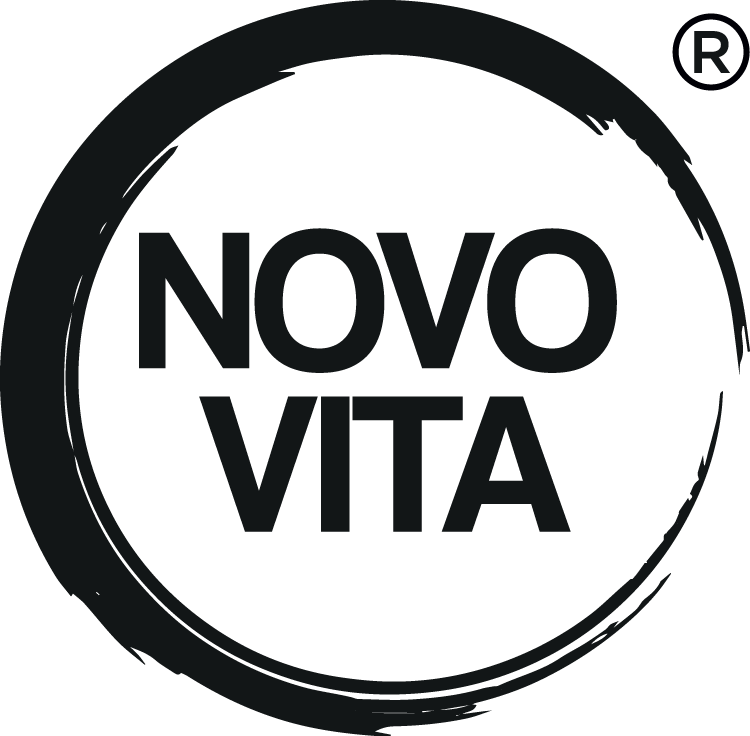Spring has finally sprung, the weather is starting to brighten up, and the sun is getting warmer, allowing us to spend more time outdoors. Yet we should not forget to supply our body with essential nutrients to help sustain optimal health and strengthen our immune system to defend against viruses that are still active in the early spring months.
Furthermore, as we know, spring is the time when pollen allergy (hay fever) is getting worse, bringing of miserable symptoms that negatively affect our wellbeing and daily activities. Hence, it is essential to take extra care of ourselves and ensure supplementing our body with enough nutrients and vitamins to be able to thrive in the beautiful weather.
Omega-3
Omega-3 fatty acids, also known as healthy fats, are essential fats because the body cannot produce them, therefore it is important to keep their intake in balance since they have many health benefits and are essential for a number of functions in the body.
Omega-3 fatty acids EPA and DHA are two essential fatty acids that are mainly found in fatty cold-water fish such as herring, mackerel or sardines, whereas another omega-3 fatty acid ALA (alpha-linolenic acid), is only found in plant sources, such as nuts and seeds. According to EFSA, the European Food Safety Authority, omega-3 fatty acids contribute to normal brain and heart function, support the normal vision and contribute to normal blood cholesterol levels. Apart from numerous health benefits, omega-3 fatty acids are known to have potent anti-inflammatory properties, which, as has been shown in previous studies, can have a protective effect against allergy-related inflammation.
For those who do not eat much of these foods rich in omega-3 fats, it is highly recommended to take it in supplement form, such as fish oil or algal oil for vegetarians and vegans.
Vitamin D
During the early spring months it is still important to keep your Vitamin D status topper up until the weather will get more stable and warm, to allow us to get exposed to the sun more and get natural vitamin D from the sunlight. Vitamin D is known to contribute to normal absorption/utilisation of calcium and phosphorus, essential nutrients that are needed to maintain strong bones and teeth, support normal blood calcium levels, maintain normal muscle and immune system function.
Because vitamin D can be stored in the body, consuming just 2 portions of oily fish per week or taking daily vitamin D supplements (especially when you have a limited intake of oily fish) could supply the body with enough vitamin D that is required to meet the body needs.
Food sources rich in vitamin D include oily fish, such as salmon, tuna, mackerel, mushrooms (champignons), eggs (egg yolks) and vitamin D fortified foods such as cow's milk or dairy alternatives.
Vitamin C
Vitamin C is a potent antioxidant that plays a vital role in the human body since it is involved in numerous metabolic reactions and provides impressive health benefits. The immunological benefits of vitamin C have been studied for many decades and have been linked to shortening the duration of seasonal health problems that promote respiratory function, sinus health and skin health. Thanks to its high antioxidant content, vitamin C can strengthen your body's natural defences and protect cells from free radicals, helping to prevent oxidative stress and enabling your body to fight inflammation. Vitamin C is not only known for its antioxidant capacity, but it's also a natural antihistamine, which can be particularly helpful during springtime for those who suffer from allergic rhinitis, also known as hay fever.
Vitamin C can be taken either in supplement form or by consuming plenty of plant foods like broccoli, Brussel sprouts, bell peppers, potatoes, berries and citrus fruits.
B Vitamins
B-complex supplementation is recommended because B-vitamins perform a wide range of bodily functions and are especially important for maintaining normal energy levels and healthy nervous system. The B vitamins act as coenzymes in energy metabolism, helping to convert energy from carbohydrates and fat or breaking down amino acids and transporting energy-containing nutrients around the body.
Vitamins B1 (thiamine), B2 (riboflavin), and B3 (niacin) support the normal function of the nervous system, while Vitamins B6 and B12 support the production of red blood cells and keep the brain working properly. Another reason why to make sure your intake of B vitamins is adequate is that B vitamins are water-soluble vitamins, therefore they can be easily excreted in the sweat through the skin, especially if you're involved in heat-exposed work or do intensive workouts.
You can obtain B vitamins naturally from food sources by consuming whole grains, meat, eggs and dairy products, legumes, seeds, nuts, fruits and dark leafy vegetables or take it in supplement form, which usually contains a complex of all of the essential B vitamins in one pill.
Zinc
Zinc is a trace mineral that regulates many body functions and provides a wide range of health benefits, in particular, it plays a crucial role in maintaining normal immune system functioning. There are a number of ways zinc supports immunity, but mainly it activates enzymes that break down proteins in viruses and bacteria; therefore, they are less able to spread.
Based on scientific research, zinc has been shown to play a role in maintaining the respiratory function of sinus health and protecting cells from oxidative stress; therefore, it is particularly important to ensure optimal intake to support overall health during springtime.
Zinc can be taken in supplement form (picolinate and citrate forms are known to have higher uptake) and can be naturally found in many foods, especially meats, poultry, and seafood that are rich in zinc. Some plant foods like legumes and whole grains, such as wheat, quinoa, rice, and oats are also good sources of zinc, but they also contain plant substances - phytates or phytic acid (mostly found in whole grains, than refined grains) that can interfere with nutrient absorption, and so those most likely will provide less zinc, however, they're considerably better to opt due to their high dietary fibre content.
Magnesium
Magnesium is the fourth most abundant mineral in our body, where approximately 60 % of it is stored in the bones and the rest in soft tissues. Magnesium is involved in more than 300 biochemical reactions around your body. This mineral contributes to the normal nervous system functioning, energy-yielding metabolism, protein synthesis, muscle contractions, contributes to electrolyte balance, has a role in cell division, and supports the health of bones and teeth. Our body needs magnesium to function healthily and sustain optimal health and well-being, both physical and mental.
Magnesium can be naturally found in many foods, including legumes, nuts, seeds, whole grains, green leafy vegetables, fortified cereals, dairy products and is also available in supplement form, such as tablets, capsules or sprays.
Reference list:
https://www.researchgate.net/publication/221830304_Omega-3_fatty_acids_EPA_and_DHA_Health_benefits_throughout_life
https://ods.od.nih.gov/pdf/factsheets/Omega3FattyAcids-Consumer.pdf
https://www.researchgate.net/publication/351012803_Vitamin_D_Sources_Metabolism_and_Deficiency_Available_Compounds_and_Guidelines_for_Its_Treatment
https://ods.od.nih.gov/pdf/factsheets/VitaminD-Consumer.pdf
https://www.researchgate.net/publication/281197629_The_importance_of_Vitamin_D
https://ods.od.nih.gov/pdf/factsheets/Zinc-Consumer.pdf
https://www.researchgate.net/publication/51788448_Zinc_and_human_health_An_update
https://www.researchgate.net/publication/277014212_A_potential_medicinal_importance_of_zinc_in_human_health_and_chronic_disease
https://ods.od.nih.gov/pdf/factsheets/VitaminC-Consumer.pdf
https://www.researchgate.net/publication/320843979_Vitamin_C_and_Immune_Function
https://www.researchgate.net/publication/319347502_The_Roles_of_Vitamin_C_in_Skin_Health
https://www.researchgate.net/publication/309636747_The_benefits_of_magnesium
https://ods.od.nih.gov/pdf/factsheets/Magnesium-Consumer.pdf
https://www.researchgate.net/publication/320093091_The_Importance_of_Magnesium_in_Clinical_Healthcare
https://www.fao.org/3/y2809e/y2809e03.pdf
https://www.researchgate.net/publication/283556727_B-complex_vitamin_deficiency_and_supplementation

